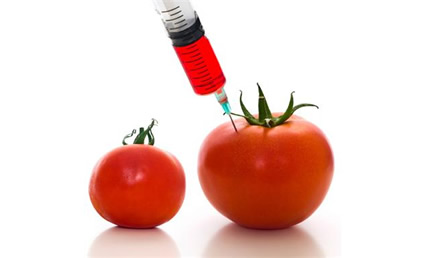GMOs pose a threat to human health

October 1, 2014
We consume them daily. In fact, they make up about 80% of processed foods that Americans eat today, according to nongmoproject.org. But what are they? They are Genetically Modified Organisms, or GMOs. Big deal, right? Yes. It is a big deal, because these so-frequently talked about “GMOs” are potentially deadly. No, we will not die tomorrow because we ate GMO foods today. But it can cut our lifespan by many years.
For those of you that are unaware, GMOs are organisms that have genetically altered genes to produce desired results unnaturally through genetic engineering. According to responsibletechnology.org, GMOs have shown to cause gastrointestinal and immune system disorders, and increases in autism, ADD, and ADHD. They can also cause organ damage, reproductive disorders, cancer, and more.
Just because it says corn, does NOT make it natural nor does it imply something healthy to eat, example, high fructose corn syrup. High fructose corn syrup is said to lead to obesity more quickly than sugar, according to research done at Princeton University. Other health problems are associated as well, such as cardiovascular disease, diabetes, and non-alcoholic fatty liver disease.
Sweet corn is genetically engineered to produce its own insecticide. When an insect tires to eat the crop, it dies because the corn was genetically modified to contain insecticide chemicals, such as Bt toxin, which can also cause reproductive disorders. If a bug dies from eating the corn, who’s to say humans won’t?
We feel that our bodies will worsen gradually over time because of GMOs. They aren’t natural to this Earth, and anything containing chemicals or unnatural ingredients will eventually ruin the human body. The purpose of food is to be eaten, not engineered.
We can easily fix the “GMO epidemic” by watching what we eat, and going fully organic. It may be a little difficult at first, but by cutting out all of those unhealthy, processed, chemical-filled foods, we can live longer, healthier lives. So the next time we hit the supermarket, let’s make an effort to read the label. If an ingredient cannot be pronounced, it probably should not be consumed. Some GMO risk chemicals include amino acids, aspartame, ascorbic acid, sodium ascorbate, and more. We can all use our common sense to question whether or not these chemicals should be in our body.


